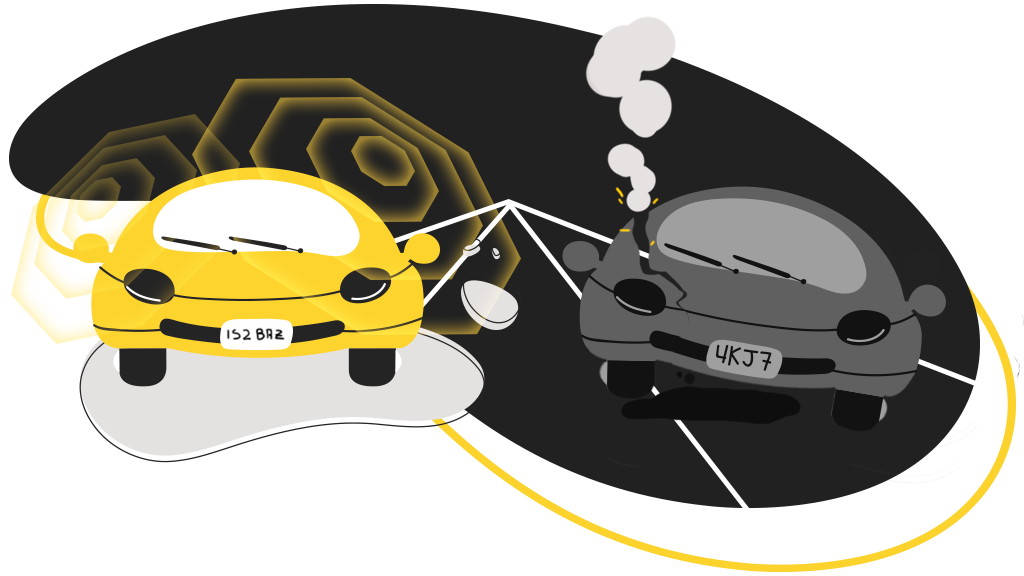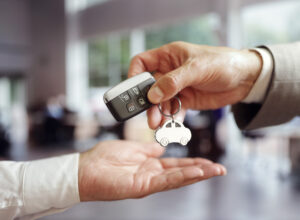Collision coverage helps pay the costs of repairing or replacing your car if it is damaged in an accident with another car or a fixed object such as a tree, fence or pole. It can also cover damage resulting from a rollover, or pay if another driver hits your car and you don’t have enough insurance to pay for the damage.
Collision coverage is like comprehensive coverage, an optional coverage that you can add to your auto insurance policy at your discretion, if the car is already 100% yours. Rented or financed cars usually have these coverages as a requirement from the lender.
What does Collision Coverage cover?
Collision coverage covers a number of traffic accidents, such as:
- Accidents with other motor vehicles, including motorcycles, RVs, etc.
- Hitting another object (street sign, telephone pole, hole, garage door, mailbox, house, tree, etc.)
- Rollover
- Hit-and-run damage, including in parking lots.
- Damage caused by an underinsured driver
If you are involved in an accident and another driver is totally at fault, his liability insurance must pay for the damage to your car. This coverage is mandatory in 49 of the 50 states, but some still do not have it. Assuming the other driver does, the claim is made to their insurance.
However, in many states, the minimum limits are low and a driver with only minimum limits may not have enough coverage to pay for his car, in which case, his collision insurance would kick in.
This is one of the reasons creditors demand comprehensive and collision coverage.
What won’t it cover?
Collision only covers damage to your car. That means you don’t pay for damage to someone else’s vehicle or property. Collision coverage also does not cover all damage to your vehicle, it does NOT cover:
- Theft
- Vandalism
- floods
- Fire
- hit an animal
- Falling trees / branches and other objects
- Hail
- Damage to someone else’s vehicle
- Medical bills (yours or someone else’s)
Some of these coverages are covered by comprehensive coverage, which complements your auto insurance policy. Learn more about Comprehensive Insurance here.
Collision vs Comprehensive
Although it is common to confuse comprehensive coverage with collision coverage, they are very different. Complementary, but different.
Comprehensive covers events beyond your control: theft, vandalism, fire and weather-related incidents. Collision coverage protects against damage to your car caused by hitting another vehicle or object, regardless of who was at fault.
ARTE COM AS DIFERENÇAS (PRINTS NA MESA)
Learn more about Comprehensive Insurance here.
To clarify: Neither coverage will cover medical expenses for an accident or damage to someone else’s vehicle if you have an accident.
Do I need collision coverage?
This coverage is only optional if the car is already 100% yours. If it is rented or still financed, chances are that this requirement has been made.
In addition to your home, your car is often your most valuable asset. How much can you shell out without warning? How would you go about fixing or replacing it if it was destroyed in an accident?
Although collision coverage increases the cost of your auto insurance policy, it protects the equity you have in your vehicle. Even if it’s not officially yours yet, collision coverage can help pay off everything you still owe.
You need to consider the situations covered by insurance and identify if they are risks that justify the added cost to your auto insurance policy. And how the disbursed amount compares to the car’s value.
When do I not need this coverage?
Assuming your car is paid off, there are some situations that justify not using collision coverage:
- Your car has a very low value:
If your car’s current value is too low, collision coverage can be an unnecessary protection, especially if a large deductible is involved. For example, if your car is worth $1,500 and your deductible is $1,000, the most your insurer will pay on a collision claim is $500.
- Your vehicle is not being used:
If your car is stored or never used, collision coverage is not required. Comprehensive coverage protects against theft, vandalism, fire, broken glass and weather-related damage that can occur while your car is stationary.
- Your car is covered by another policy:
If your vehicle is listed on a family member’s policy, has collision coverage, and is kept overnight at the address you share with that family member, you may not need to add a collision to your own policy. Make sure you are also listed as a driver on that person’s policy and speak with your insurer or agent to ensure that you and your car are properly protected.
Need to know the price of collision coverage? Get an online car insurance quote and find out exactly how much it will cost in just minutes.








